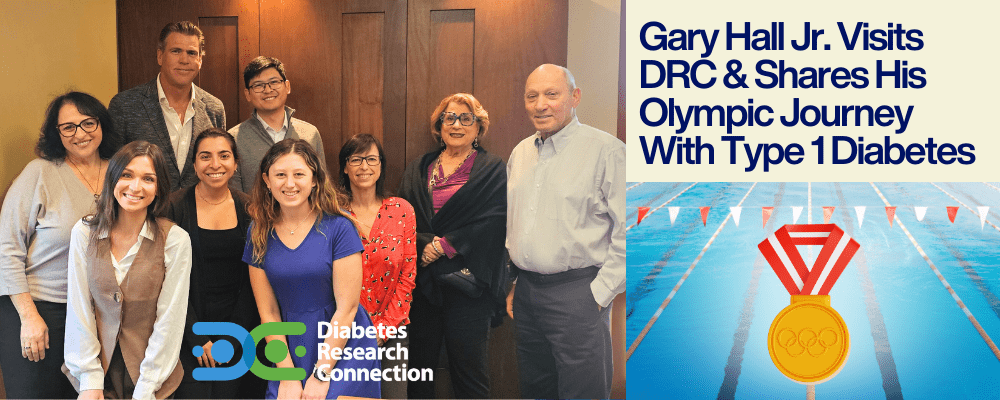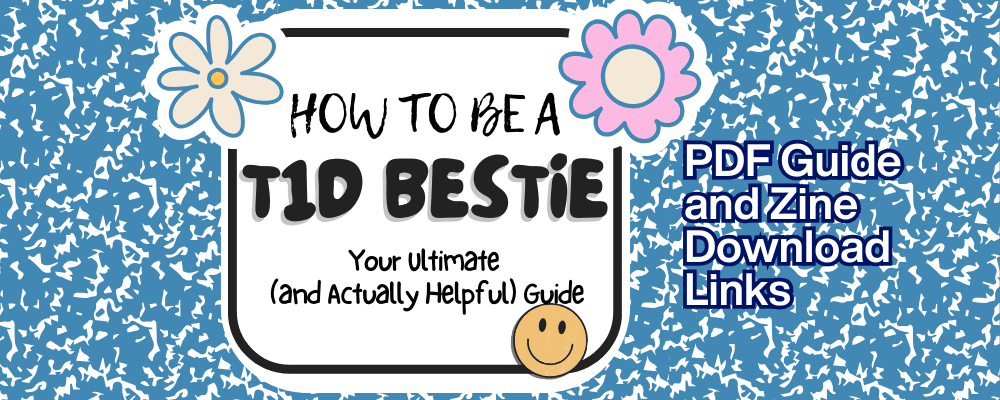In this enlightening Q&A, Dr. Mark Heyman, a renowned psychologist specializing in type 1 diabetes (T1D), dives into the often overlooked intersection of T1D and eating disorders. With extensive experience in both clinical psychology and diabetes education, as well as having T1D himself, Dr. Heyman sheds light on the unique mental health challenges faced by individuals within the T1D community.
As we observe Mental Health Awareness Month, understanding these complexities is more crucial than ever. This conversation aims to uncover the psychological underpinnings of eating disorders among those dealing with T1D, offering vital insights and practical advice for patients, caregivers, and healthcare providers alike. Join us as Dr. Heyman answers questions about T1D and eating disorders.
For a deeper exploration of the specific struggles and personal stories within the T1D community, be sure to read our related blog, “Type 1 Diabetes and Eating Disorders: The Hidden Battle.” This piece provides a closer look at the personal impacts and challenges faced by those dealing with both conditions. To learn more and support vital research in this area, consider donating to Diabetes Research Connection (DRC).
Q&A With Dr. Mark Heyman
Welcome to our Q&A session with Dr. Mark Heyman, where we delve into challenges and treatment strategies related to eating disorders within the T1D community. In this conversation, Dr. Heyman will answer targeted questions that reveal the depth of his expertise and offer actionable insights. From the prevalence and diagnosis of eating disorders in T1D patients to the most effective interventions, this section aims to empower readers with knowledge and understanding to better manage these intertwined health issues.

Can you describe your professional background and what led you to specialize in the intersection of T1D and mental health/eating disorders?
I am a diabetes psychologist and Certified Diabetes Care and Education Specialist (CDCES) and my work focuses exclusively on helping people with T1D navigate around the emotional burden of living with diabetes. (As a note, I do not specialize in eating disorders specifically).
I was diagnosed with T1D in 1999, and after my diagnosis, I searched for resources to help me deal with the mental challenges I was facing. But I couldn’t find any. So I decided to become the resource for others that I wish I had.
How prevalent are eating disorders among individuals with T1D and why is it important to address this issue specifically within this population?
Eating disorders are very common among people with T1D. Research suggests that over 30% of women with T1D meet the criteria for eating disorders. Men with T1D experience eating disorders as well, but there is limited data on the prevalence for men.
It is important to address eating disorders for people with T1D for several reasons. First, people with T1D and eating disorders have high rates of diabetes distress and other emotional challenges. Addressing disordered eating is critical to treating the person’s emotional health. In addition, eating disorders can have a big impact on blood sugar management, so treating them is important to keep the person safe and healthy.
What are some specific risk factors for eating disorders in people with T1D? How do these differ from the general population?
Risk factors for eating disorders in people with T1D include increased body mass index (BMI), low self-esteem, depression, and dietary restraint.
Insulin use can be associated with weight gain, which can increase the risk of disordered eating behavior and insulin omission. In addition, because of the daily management burden of diabetes, people with T1D are at higher risk for symptoms of depression. Finally, because diabetes management requires paying attention to food intake, people with T1D are at higher risk for dietary restraint.
In what ways does managing T1D affect the mental health of patients, potentially contributing to conditions like eating disorders?
Managing T1D takes a lot of work, and the never-ending task of managing T1D can lead to increased levels of stress and anxiety. The stress of the daily management tasks of diabetes is commonly known as diabetes distress, which can be a risk factor for disordered eating behavior.
What challenges are there in diagnosing eating disorders in individuals with T1D, and how can healthcare providers overcome these challenges?
One of the biggest challenges to diagnosing eating disorders in people with T1D is that people with eating disorders tend to be secretive about them. They may not tell their doctor about what they are doing.
Healthcare professionals can overcome these challenges by asking questions about eating behavior and insulin use during each office visit, and by being open to listening to their patients’ experiences.
What are the most effective treatment strategies for managing eating disorders in individuals with T1D?
Treatment for eating disorders in people with T1D requires a multidisciplinary approach. From a psychological perspective, Cognitive Behavioral Therapy (CBT) has been shown to be effective. In addition, Medical Nutrition Therapy, and support with insulin management are important.
Finally, support groups and psychiatric medications are helpful for ongoing support. This type of integrated strategy ensures both diabetes and eating disorder symptoms are effectively managed.
What role do family members and caregivers play in supporting individuals with T1D who are facing eating disorders?
Family members and caregivers play an important role in supporting their loved one with T1D and an eating disorder. They can offer a non-judgmental space for open communication, helping their loved ones to manage their emotions. Additionally, family members can be “accountability partners” helping to make sure their loved one with T1D is following their diabetes management plan and eating disorder treatment.
Are there preventative measures that can be taken to reduce the risk of developing an eating disorder for someone with T1D?
There are several measures that can be taken to reduce the risk of eating disorders in people with T1D. First, education about diabetes management and nutrition, that emphasizes food’s role in managing blood sugar, not weight control. Access to psychological support like therapy can strengthen coping skills and improve body image perception.
Finally, engaging in peer support (both in person and virtual) helps people develop a sense of community and reduces isolation, which is crucial for emotional well-being in people with T1D.
Can you discuss any recent research or new developments in the field of T1D and eating disorders?
This is a very under-researched area, so (unfortunately) I am not aware of any new research developments.
What advice would you offer to patients with T1D and their families to help them recognize and address eating disorders effectively?
First, support them every step of the way in their treatment, even if they are struggling to stay on track. Your support could be the key to their recovery.
Second, honesty is the best policy. If you see signs of disordered eating with your loved one with T1D, let them know you are concerned and offer to help them get the help they need.
We thank Dr. Mark Heyman for his invaluable insights into the complex world of eating disorders in those with T1D. His expertise has illuminated many facets of how psychological health interplays with chronic illness management, providing our readers with a deeper understanding and practical advice. For those seeking further information or needing support, remember that resources are available, and reaching out for professional help is a crucial step towards better health. We encourage our community to continue this conversation and advocate for comprehensive care in T1D management.
Elevating Awareness and Action
As we wrap up this enlightening conversation during Mental Health Awareness Month, it’s clear that the path to better health is not just through medical treatment but also through understanding and addressing the psychological challenges that accompany chronic conditions like T1D.
Let’s take these insights forward, advocating for more resources and better support systems that can help those affected manage their health holistically. We invite you to join the movement by sharing this information and helping us spread the word. Together, we can make a significant impact on the lives of those living with T1D and eating disorders. To contribute to ongoing research, visit Diabetes Research Connection and see how you can make a difference.
To further enhance your understanding of the complex relationship between T1D and eating disorders, we encourage you to read our detailed blog, “Type 1 Diabetes and Eating Disorders: The Hidden Battle.” This blog delves deeper into the challenges and personal experiences of those navigating these coexisting conditions. For more insights and to join us in supporting groundbreaking research in this field, consider donating to DRC.




